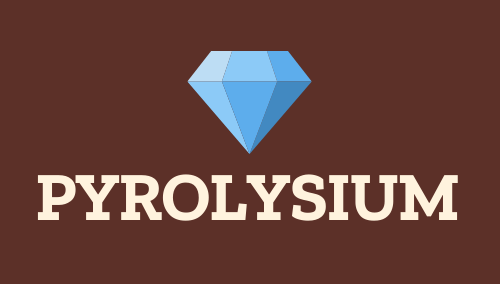As gardeners and environmentally conscious individuals, we’re constantly seeking ways to nurture our gardens while minimizing our ecological footprint. One crucial aspect of sustainable gardening lies in utilizing eco-friendly soil amendments, which can significantly impact the health and productivity of our plants. By opting for natural solutions, we can improve soil structure, increase nutrient availability, and promote beneficial microbial activity – ultimately leading to thriving gardens that require fewer synthetic fertilizers and pesticides.

Best Natural Soil Amendments
We’re excited to share our top picks for natural soil amendments that can help improve your garden’s health and fertility.
-
Compost
Compost is a nutrient-rich amendment made from decomposed organic matter like food scraps, leaves, and grass clippings. It improves soil structure, increases water retention, and supports beneficial microorganisms.
Learn more about composting and its benefits on our composting guide .
-
Biochar
Biochar is a type of charcoal produced through pyrolysis, a process that converts biomass into a stable, carbon-rich material. It enhances soil fertility, reduces greenhouse gas emissions, and promotes healthy microbial activity.
Discover the benefits of biochar and how to incorporate it into your gardening routine on our biochar resource page .
-
Worm Castings
Worm castings, also known as vermicompost, are a nutrient-dense amendment produced by worms breaking down organic matter. They improve soil structure, increase plant growth, and support beneficial microorganisms.
Learn more about worm casting production and its applications on our worm casting guide .
-
Green Sand
Green sand is a type of glauconite, a mineral-rich sedimentary rock that acts as a slow-release fertilizer. It improves soil fertility, increases crop yields, and supports beneficial microorganisms.
Explore the benefits of green sand and how to use it in your garden on our green sand resource page .
-
Manure Tea Best Natural Soil Amendments
We’re excited to share our top picks for natural soil amendments that can help improve your garden’s health and fertility.
-
Compost
Compost is a nutrient-rich amendment made from decomposed organic matter like food scraps, leaves, and grass clippings. It improves soil structure, increases water retention, and supports beneficial microorganisms.
Learn more about composting and its benefits on our composting guide .
-
Biochar
Biochar is a type of charcoal produced through pyrolysis, a process that converts biomass into a stable, carbon-rich material. It enhances soil fertility, reduces greenhouse gas emissions, and promotes healthy microbial activity.
Discover the benefits of biochar and how to incorporate it into your gardening routine on our biochar resource page .
-
Worm Castings
Worm castings, also known as vermicompost, are a nutrient-dense amendment produced by worms breaking down organic matter. They improve soil structure, increase plant growth, and support beneficial microorganisms.
Learn more about worm casting production and its applications on our worm casting guide .
-
Green Sand
Green sand is a type of glauconite, a mineral-rich sedimentary rock that acts as a slow-release fertilizer. It improves soil fertility, increases crop yields, and supports beneficial microorganisms.
Explore the benefits of green sand and how to use it in your garden on our green sand resource page .
-
Manure Tea
Manure tea is a liquid solution made by steeping animal manure in water. It provides essential nutrients, improves soil structure, and supports beneficial microorganisms.
Find out how to make and use manure tea in your garden on our manure tea guide .
-
Peat Moss
Peat moss is a highly acidic, nutrient-poor soil amendment made from partially decayed plant matter. It improves soil structure, retains moisture, and supports beneficial microorganisms.
Learn more about peat moss and its uses in gardening on our peat moss resource page .
-
Amending Soil Organically
We believe that amending soil organically is essential for maintaining healthy and productive gardens.
-
Compost Addition
One of the most effective ways to amend soil organically is by adding compost. Compost is rich in nutrients and microorganisms that help to improve soil structure, increase fertility, and support beneficial microbial life.
We recommend using a mix of green and brown materials, such as food scraps, leaves, and grass clippings, to create a nutrient-rich compost.
For a more efficient composting process, consider using a worm composter or bokashi bin.
-
Biochar Incorporation
Biochar is a type of charcoal that has been shown to have numerous benefits for soil health, including improved water retention, increased fertility, and enhanced microbial activity.
To incorporate biochar into your soil, simply mix it in according to the manufacturer’s instructions.
You can purchase biochar online or at local gardening stores.
-
Manure Tea Application Amending Soil Organically
We believe that amending soil organically is essential for maintaining healthy and productive gardens.
-
Compost Addition
One of the most effective ways to amend soil organically is by adding compost. Compost is rich in nutrients and microorganisms that help to improve soil structure, increase fertility, and support beneficial microbial life.
We recommend using a mix of green and brown materials, such as food scraps, leaves, and grass clippings, to create a nutrient-rich compost.
For a more efficient composting process, consider using a worm composter or bokashi bin.
-
Biochar Incorporation
Biochar is a type of charcoal that has been shown to have numerous benefits for soil health, including improved water retention, increased fertility, and enhanced microbial activity.
To incorporate biochar into your soil, simply mix it in according to the manufacturer’s instructions.
You can purchase biochar online or at local gardening stores.
-
Manure Tea Application
Manure tea is a liquid solution made by steeping animal manure in water. It is a great way to add beneficial microbes and nutrients to your soil.
To make manure tea, simply place a bucket of manure in a larger container filled with water and let it steep for several days.
Strain the liquid and apply it to your plants as a foliar spray or soil drench.
-
Green Sand Amendment
Green sand is a type of glauconite that is rich in potassium and other micronutrients. It is a great addition to your soil amendment routine.
To use green sand, simply mix it into your soil according to the manufacturer’s instructions.
Be sure to choose a high-quality green sand product that is free of contaminants.
-
Worm Castings Inclusion
Worm castings are the nutrient-rich waste produced by worms as they break down organic matter. They are a great addition to your soil amendment routine.
To use worm castings, simply mix them into your soil according to the manufacturer’s instructions.
Be sure to choose a high-quality worm casting product that is free of contaminants.
By incorporating these organic amendments into your soil care routine, you can create a healthy and thriving garden ecosystem.
Remember to always follow the manufacturer’s instructions when using any new products, and be sure to test a small area before applying any amendments to your entire garden.
With a little patience and effort, you can enjoy a lush and productive garden that is teeming with life and vitality.
-

Amending Soil on a Budget
I’m always looking for ways to improve my garden beds without breaking the bank.
- Add Organic Matter: One of the cheapest ways to amend soil is by adding organic matter such as compost, leaf mold, or well-rotted manure. These materials are rich in nutrients and improve soil structure, aeration, and water-holding capacity.
- Use Local Materials: Consider using local materials like kitchen scraps, coffee grounds, or tea bags to create a nutrient-rich compost. This approach reduces waste and saves money.
- Make Your Own Compost Tea: Compost tea is a liquid solution made by steeping compost in water. It’s a cost-effective way to deliver beneficial microbes to your soil, promoting healthy plant growth and reducing the need for synthetic fertilizers.
- Repurpose Cardboard and Newspaper: Shredded cardboard and newspaper can be added to your compost pile or used as mulch to retain moisture and suppress weeds.
- Utilize Green Manures: Green manures like clover, rye, or oats can be grown as cover crops to add organic matter and nutrients to your soil. They’re often cheaper than buying commercial amendments and can be incorporated into your soil as a green manure.
- Collect Rainwater: Harvesting rainwater reduces the need for expensive irrigation systems and helps conserve this precious resource.
- Use Natural Pest Control Methods: Encourage beneficial insects and microorganisms in your garden by using natural pest control methods like neem oil, diatomaceous earth, or introducing beneficial nematodes.
- Avoid Over-Tilling: Excessive tilling can damage soil structure and lead to erosion. Minimize tilling and use techniques like no-dig gardening or lasagna gardening to preserve soil health.
- Monitor pH Levels: Regularly test your soil pH levels to ensure they’re suitable for optimal plant growth. Adjustments may be necessary, but this can be done inexpensively using lime or sulfur.
- Consider Using Cover Crops: Planting cover crops during the off-season can help replenish soil nutrients, suppress pests and diseases, and improve soil structure.
- Learn About Permaculture Principles: Permaculture design principles emphasize working with nature to create regenerative and resilient ecosystems. Applying these principles can help you develop a more efficient and cost-effective gardening strategy.
By implementing these budget-friendly strategies, you’ll be able to create a thriving and sustainable garden ecosystem without breaking the bank.

What is the Perfect Amendment Soil Additive?
The Perfect Amendment is a soil additive developed by AlPar Peat Co, containing a high concentration of patented beneficial Streptomyces on an iron and humic acid carrier.
- This unique blend helps produce healthier plants that are more resistant to stress and require less water.
- The Perfect Amendment works by promoting a balanced ecosystem in the soil, supporting beneficial microorganisms and reducing the need for excessive watering.
Key Benefits:
- Improved plant health and resilience
- Reduced water consumption
- Enhanced soil fertility and structure
How Does it Work?
The Perfect Amendment contains patented beneficial Streptomyces, which work synergistically with the iron and humic acid carrier to promote a healthy soil microbiome.
- These beneficial microbes help break down organic matter, release nutrients, and stimulate plant growth.
- The iron and humic acid components support the development of beneficial microbial populations, creating a balanced and thriving soil ecosystem.
Competitors and Alternatives:
While there are several other soil additives available, the Perfect Amendment stands out due to its unique combination of patented beneficial Streptomyces and iron and humic acid carrier.
- Other popular soil additives may offer similar benefits, but often lack the patented technology and scientific backing of the Perfect Amendment.
- When choosing a soil additive, consider factors such as ingredient quality, efficacy, and customer reviews to find the best product for your needs.
Conclusion:
The Perfect Amendment is a highly effective soil additive that promotes healthier plants, reduces water consumption, and enhances soil fertility and structure.
By understanding how it works and comparing it to alternative products, gardeners and farmers can make informed decisions about which soil additive to choose for optimal results.
Is Peat Moss a Good Soil Amendment?
As someone who’s passionate about sustainable living and eco-friendly technologies, I’m often asked about the benefits and drawbacks of using peat moss as a soil amendment.
- Peat moss is a highly effective soil conditioner that can improve soil structure, increase water retention, and support healthy microbial activity.
- Its unique spongy texture allows it to hold up to 20 times its weight in water, making it an excellent choice for gardens prone to drought or waterlogged conditions.
- Additionally, peat moss can help to reduce soil compaction, promote root growth, and enhance nutrient availability for plants.
The Pros of Using Peat Moss:
- Improved Soil Structure: Peat moss helps to break down clay particles, reducing soil density and allowing roots to grow deeper and stronger.
- Increased Water Retention: By holding onto water, peat moss reduces the need for frequent watering and minimizes soil erosion.
- Supports Healthy Microbial Activity: Peat moss provides a habitat for beneficial microorganisms, which play a crucial role in decomposing organic matter and recycling nutrients.
The Cons of Using Peat Moss:
- Sustainability Concerns: Peat bogs are sensitive ecosystems that take centuries to develop, and harvesting peat moss can harm these environments.
- Potential for Overuse: Excessive use of peat moss can lead to soil acidification and nutrient imbalances, ultimately harming plant growth.
- Availability and Cost: High-quality peat moss can be expensive and may not be readily available in all regions.
Alternatives to Peat Moss:
- Coco Coir: A sustainable alternative to peat moss, coco coir is made from coconut husks and offers similar benefits without the environmental concerns.
- Compost: Rich in nutrients and beneficial microbes, compost can help to improve soil structure and fertility while reducing waste.
- Bark Chips: A cost-effective option, bark chips can help to improve soil drainage and aeration while suppressing weeds.
Conclusion:
While peat moss has its advantages and disadvantages, it remains a popular choice among gardeners due to its effectiveness in improving soil structure and increasing water retention. However, it’s essential to consider the potential sustainability concerns and alternatives before incorporating peat moss into your gardening routine.
Amending Clay Soil
As someone who values sustainable living and eco-friendly technologies, I understand the importance of improving clay soil for better plant growth and overall garden health.
- Bark, manure, leaf mold, and compost are common organic amendments used to improve clay soil.
- These materials form a protective blanket when applied to the soil surface, slowing down evaporation and reducing soil hardening.
- However, there are other effective options available, including:
- Pyrolysis-based Biochar : A highly effective amendment that improves soil structure, increases water retention, and supports beneficial microbial life.
- Worm Castings : Rich in nutrients and microorganisms, worm castings promote healthy root development and enhance soil fertility.
- Green Sand : A natural source of potassium, green sand helps regulate soil pH and promotes balanced nutrient uptake.
- Composted Cow Manure : High in nitrogen, phosphorus, and potassium, composted cow manure supports robust plant growth and soil health.
In addition to these amendments, it’s essential to consider the role of pyrolysis in improving clay soil. By transforming waste materials into valuable resources like biochar, we can create a more sustainable and regenerative approach to gardening.
When selecting the best product to amend clay soil, it’s crucial to evaluate factors such as nutrient content, pH levels, and microbial activity. By choosing a combination of organic amendments and leveraging the benefits of pyrolysis, you can create a thriving and resilient garden ecosystem.
Conclusion
Improving clay soil requires a thoughtful and multi-faceted approach. By incorporating a range of organic amendments and embracing the potential of pyrolysis, you can create a garden that is not only beautiful but also sustainable and environmentally conscious.

0 Comments